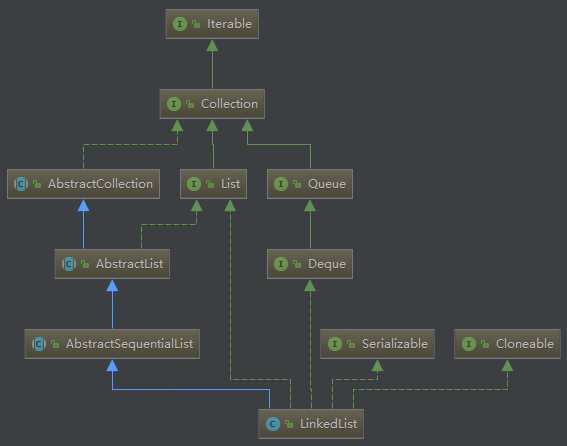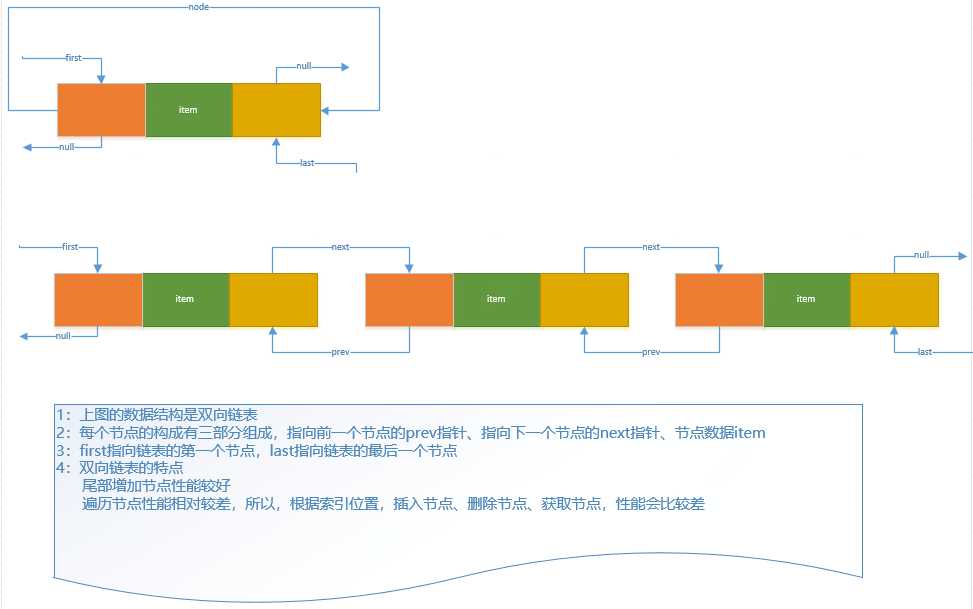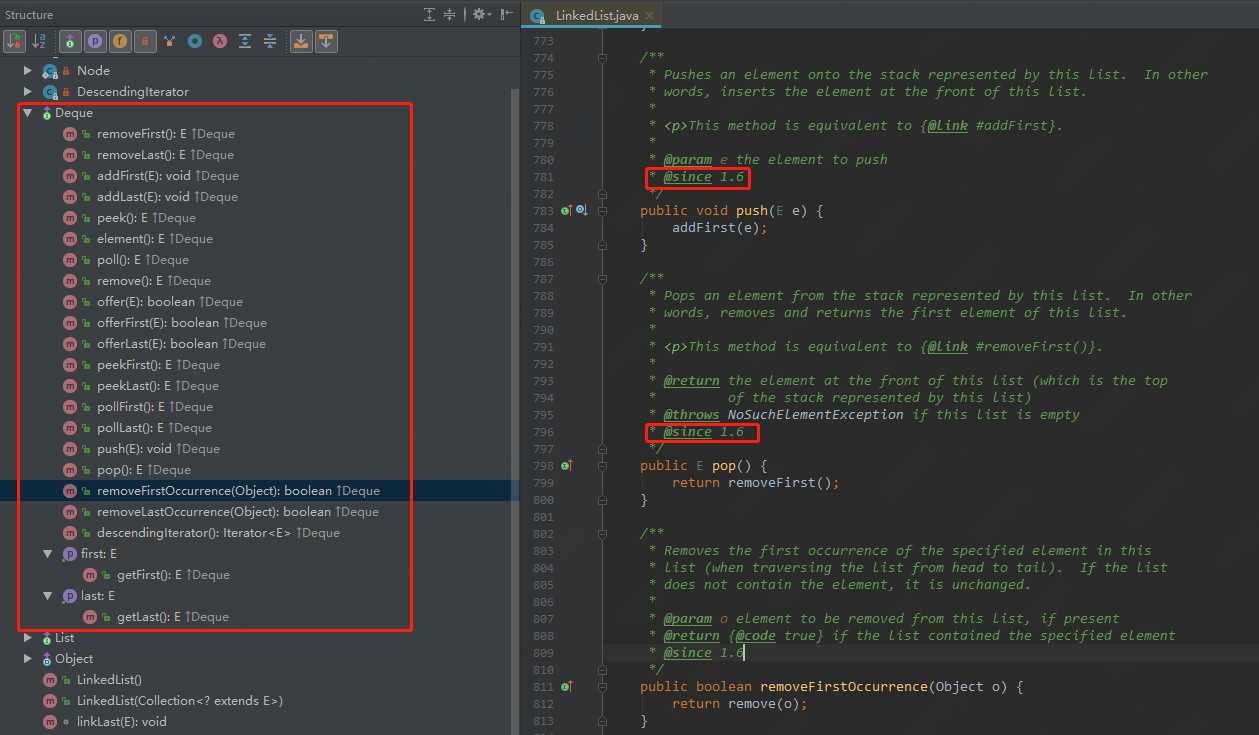分析轮子(六)- LinkedList.java
2021-07-02 17:04
标签:soscw cep mic dex rac ansi image 实现 有一个 注:玩的是JDK1.7版本 一:先上类的继承结构图 二:再看一下他的底层实现数据结构 三:然后从源码中找点好玩的东西 1)双向链表的结构构成元素,头指针、尾指针、节点信息(前向指针、后向指针、节点信息) 2)在链表尾部添加新节点,只需要改变链表尾指针的指针指向就可了,所以,性能相对 ArrayList.java 的数组拷贝会好很多 This method is equivalent to { 3)根据索引位置,获取节点,会遍历链表性能相对会差一些,并且我们也能看到遍历的时候也有一个优化,通过索引位置和链表长度的一半比较,决定从头遍历还是从尾遍历,这样能通过减少遍历长度加快遍历速度的作用,不过当索引位置在中间的时候,就不好玩了,无论从头或从尾遍历性能不会比较差 4)根据节点信息获取索引位置的方法,可以看到节点信息是允许为null的 5)下面的三个方法,是根据索引位置,修改、删除索引位置的节点,都会遍历链表,所以,性能相对会差一些,ArrayListljava 是通过数组的索引位置直接操作的 6)双向链表也可以当做双向队列使用 分析轮子(六)- LinkedList.java 标签:soscw cep mic dex rac ansi image 实现 有一个 原文地址:https://www.cnblogs.com/godtrue/p/9629535.html

/**
* Pointer to first node.
* Invariant: (first == null && last == null) ||
* (first.prev == null && first.item != null)
*/
transient Node
private static class Node
/**
* Appends the specified element to the end of this list.
*
*
/**
* Links e as last element.
*/
void linkLast(E e) {
final Node
/**
* Returns the element at the specified position in this list.
*
* @param index index of the element to return
* @return the element at the specified position in this list
* @throws IndexOutOfBoundsException {@inheritDoc}
*/
public E get(int index) {
checkElementIndex(index);
return node(index).item;
}
/**
* Returns the (non-null) Node at the specified element index.
*/
Node
/**
* Returns the index of the first occurrence of the specified element
* in this list, or -1 if this list does not contain the element.
* More formally, returns the lowest index {@code i} such that
* (o==null ? get(i)==null : o.equals(get(i))),
* or -1 if there is no such index.
*
* @param o element to search for
* @return the index of the first occurrence of the specified element in
* this list, or -1 if this list does not contain the element
*/
public int indexOf(Object o) {
int index = 0;
if (o == null) {
for (Node
/**
* Replaces the element at the specified position in this list with the
* specified element.
*
* @param index index of the element to replace
* @param element element to be stored at the specified position
* @return the element previously at the specified position
* @throws IndexOutOfBoundsException {@inheritDoc}
*/
public E set(int index, E element) {
checkElementIndex(index);
Node
/**
* Inserts the specified element at the specified position in this list.
* Shifts the element currently at that position (if any) and any
* subsequent elements to the right (adds one to their indices).
*
* @param index index at which the specified element is to be inserted
* @param element element to be inserted
* @throws IndexOutOfBoundsException {@inheritDoc}
*/
public void add(int index, E element) {
checkPositionIndex(index);
if (index == size)
linkLast(element);
else
linkBefore(element, node(index));
}
/**
* Removes the element at the specified position in this list. Shifts any
* subsequent elements to the left (subtracts one from their indices).
* Returns the element that was removed from the list.
*
* @param index the index of the element to be removed
* @return the element previously at the specified position
* @throws IndexOutOfBoundsException {@inheritDoc}
*/
public E remove(int index) {
checkElementIndex(index);
return unlink(node(index));
}

文章标题:分析轮子(六)- LinkedList.java
文章链接:http://soscw.com/index.php/essay/100875.html